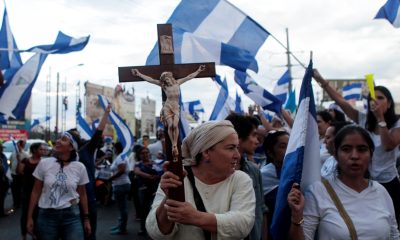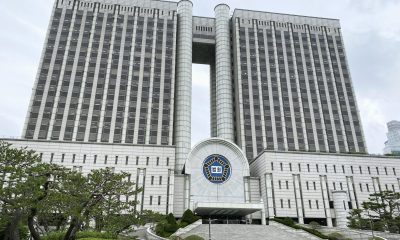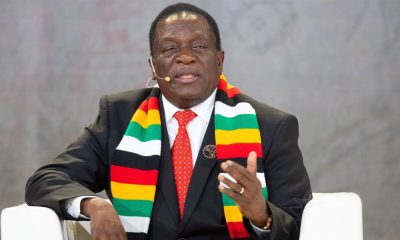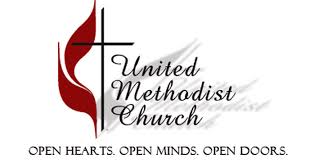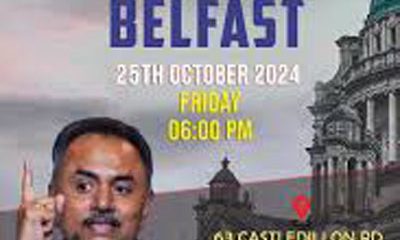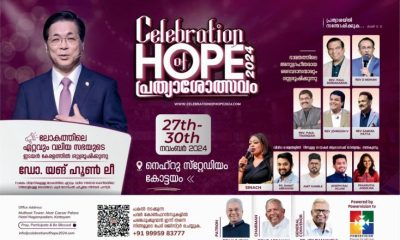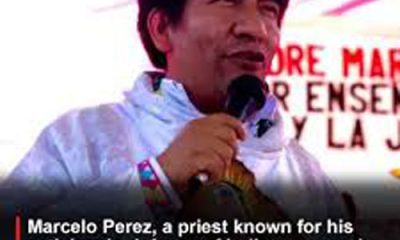us news
President of Zimbabwe praying in Jesus name for deliverance from Corona
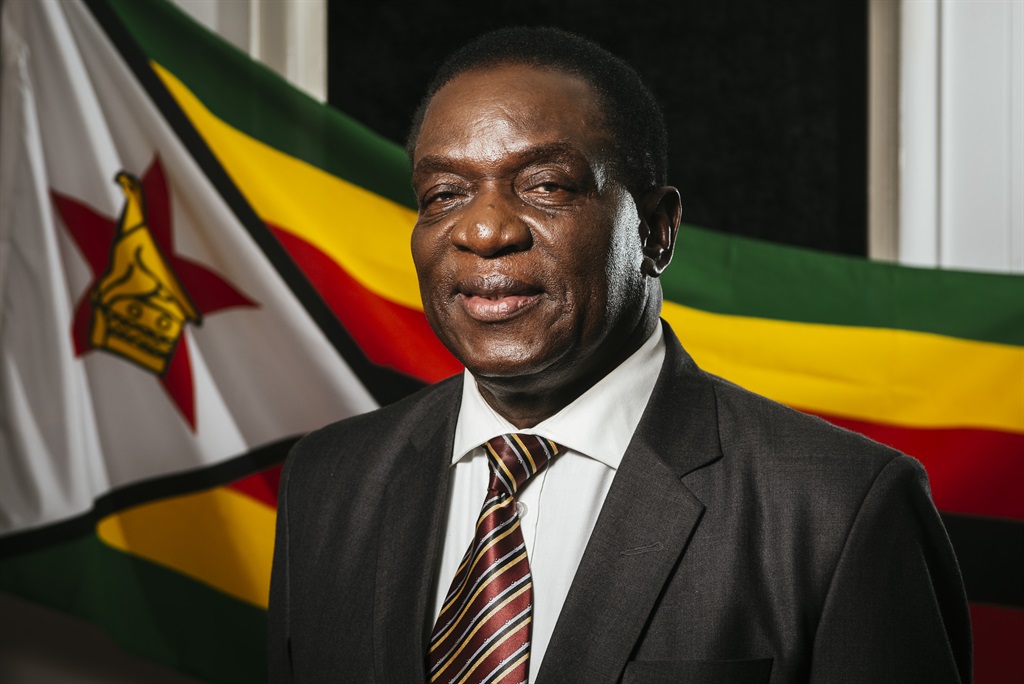
A unique multi-faith prayer service at State House was the centre of the National Day of Prayer yesterday with the full spectrum of Christian groups — Catholic, Orthodox, Protestant, Evangelical and indigenous — plus representatives of the Islamic, Jewish and Hindu faiths converging to seek healing from the Covid-19 pandemic.
The Day of National Prayer and Fasting was called by President Mnangagwa for Zimbabweans to commit themselves to repentance and deliverance in the face of the pandemic and the measures needed to confront it and beat it.
Presiding over the occasion, the President urged religious leaders to lead the way in nourishing souls of the people at a time of great adversity. He said in love, peace and unity Zimbabwe shall overcome.
The special service upheld the strict coronavirus guidelines, which include social distancing, the wearing of face masks and gatherings of people in small groups, with each faith group having a single representative.
First Lady Amai Auxillia Mnangagwa, Vice Presidents Constantino Chiwenga and Kembo Mohadi and several Cabinet ministers were also in attendance.
In his short address, the President said while he had declared June 15 as the National Day of Fasting and Prayer, the Bible implored people to observe God’s commandments by praying regularly.
“Today we come boldly before the heavenly throne of grace standing on the scripture, as I highlighted in the declaration of this day; found in 2nd Chronicles 7 v 13-15 which reads . . . ‘if I send pestilence among my people and people who are called by my name shall humble themselves and pray and seek my face and turn from their wicked ways, then will I hear from heaven and will forgive their sin and will heal their land. Now mine eyes shall be open and my ears attend to the prayer that is made in this place’.
“We therefore gather in prayer, in the total belief and knowledge that the word of God is true for indeed ‘Heaven and earth will pass away but his word, shall not pass away’ (Matthew 24 v 35). We are also confident that God watches over his word, to perform it,” President Mnangagwa said.
The President said God’s word is clear that pestilences such as Covid-19 would come as a warning to people to leave their sinful ways. As such, President Mnangagwa said Zimbabweans had two choices to make in light of the pandemic; either to repent and seek God’s help or continue to live in defiance of his word.
“In Zimbabwe we have chosen to be part of the first category of those who humble themselves, acknowledging God and glorifying him as God,” he said.
So far the global pandemic has killed four people in Zimbabwe with 383 infections and 54 recoveries but statistics worldwide are grimmer with close to half a million fatalities and close to 10 million confirmed cases along with millions more that were never tested.
Although Zimbabwe has kept the disease at bay, largely due to a raft of measures that were rolled by the Government such as social distancing, wearing masks and limiting movements — the President said the country still has to pray to God for total deliverance.
“We have chosen to repent and to seek his mercy, help, healing and healing in the face of this deadly coronavirus pandemic. I as your President have no hesitation in leading and calling us all to this path of seeking divine help.”
President Mnangagwa then led the nation in prayer asking for God’s forgiveness for the country’s sins, idol worshipping and worshipping of false gods, immorality and injustice and corruption that have made the poor die.
After the President’s address, religious leaders took turns to offer prayers.
The Master of Ceremonies, Reverend Andrew Wutawunashe, emphasised the importance of prayer as he appealed to the nation to observe a few moments of devotion to the Lord, so that all sins are forgiven, and new avenues are opened for the good of the nation. Declaring that God is the Lord, he asked for the nation’s protection against the ravaging coronavirus.
Patron of the indigenous churches Nehemiah Mutendi thanked President Mnangagwa for convening such a gathering. He described President Mnangagwa as a rare breed of God-fearing presidents he had met.
“I would like to thank the President for this service. Of all the presidents I have seen, he is the only one that has shown respect and acknowledged that there is a higher authority than him,” Bishop Mutendi said.
He added that because of the Day of Fasting and Prayer, Zimbabwe had overcome the Covid-19 pandemic.
“As the Bible says, any commitment made here on earth would be bound in heaven. This service is a proclamation of the defeat of the pandemic,” Bishop Mutendi added.
Mrs Egnes Sithole, who joined the session under the banner of the Zimbabwe Interdenominational Council of Churches, said she believed life could never be the same again as the nation joined in prayer against the pandemic, and all other ills bedevilling the Motherland.
On the other hand, Madzibaba Moses Gwasira of Johane Masowe WeChishanu in Highfield said it was important for Zimbabweans to know that God had all solutions to life’s challenges.
“As Zimbabweans we should know that God has the answers to the problems and challenges we face so I thank the President for dedicating this day to praying and seeking God’s healing.
“Going forward we should have a day like this where we dedicate our country to God and not to only think of him when we have problems,” he said.
In his remarks VP Mohadi thanked the President for leading from the front in the fight against the pandemic. He said: “Our guest of honour President Mnangagwa has led from the front in the fight against the pandemic and believes that our culture and religion are at the centre of people’s lives.”
VP Chiwenga said yesterday’s prayer session would deliver the nation from the effects of the pandemic: “There is also no known cure for this pandemic to date but we know there can be a cure from God if we pray and submit to him like we have done today.”
us news
How former atheist Ayaan Hirsi Ali found peace in Christ
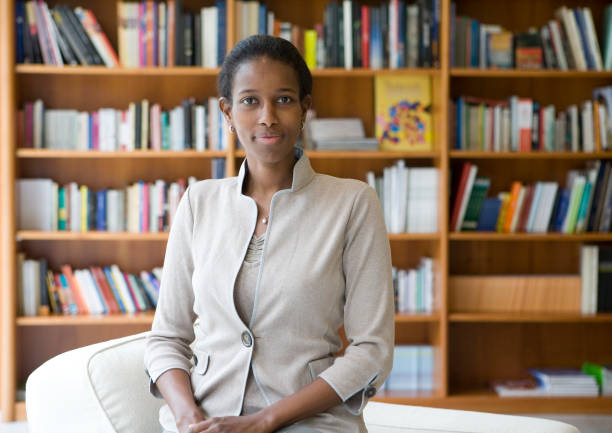
When you hear the term New Atheism, you may think of Christopher Hitchens and Richard Dawkins. But you are probably less familiar with Ayaan Hirsi Ali, who stood right by their side in strongly denouncing Christianity. This influential scholar and intellectual was essentially the fifth most prominent new atheist behind Hitchens, Dawkins, Sam Harris and Daniel Dennett.
Hirsi Ali was raised as a Muslim in Somalia. But she eventually began to oppose forced marriage, honor killing, child marriage, and female genital mutilation. Ayaan renounced her Islamic faith and became an atheist. She moved to the Netherlands at the age of 23 and rose to become a top-ranking politician.
Hirsi Ali’s books, Infidel: My Life (2007) and Heretic: Why Islam Needs a Reformation Now (2015) became bestsellers. But rejecting Islam and embracing atheism still left her soul feeling empty, in spite of the fact that “Hirsi Ali was a central figure in New Atheism since its beginnings.”
Last year, Hirsi Ali announced that she had become a Christian, which of course shocked her atheist friends. But it wasn’t intellectual arguments that ultimately convinced Hirsi Ali to embrace Christianity. It was what happened when she humbled herself before the God of the universe. Hirsi Ali prayed fervently and cried out to the Lord for help.
In a friendly discussion & debate with Richard Dawkins a few months ago, Ayaan explained her journey: “I had a personal crisis … I lived for about a decade with intense depression and anxiety, self-loathing. I hit rock bottom. I went to a place where I actually didn’t want to live anymore, but I wasn’t brave enough to take my own life. I was self-medicating. Over a long period of time, I saw psychiatrists and other doctors. I was trying to understand my condition and I was trying to treat it with the help of pure evidence-based science.”
Hirsi Ali continued, “I saw one therapist who said, ‘Perhaps you have something else.’ She described it as ‘spiritual bankruptcy,’ and that resonated with me. And having reached a place where I had absolutely nothing to lose, I prayed, and I prayed desperately. And for me, that was a turning point. And what happened after that is a miracle in its own right.”
Hirsi Ali learned the painful lesson that Islam provides no inner peace, but only brutality and fear, especially for women and young girls. Likewise, she discovered firsthand that atheism also leaves your soul feeling empty. Ayaan was terribly unfulfilled, in spite of her close friendships with Hitchens, Dawkins, Harris and Dennett. Atheism simply did not satisfy the deep longings within her, and even brought her to the brink of suicide.
Dawkins finds it next to impossible to see where Hirsi Ali is coming from today. She has tried to help him understand that there are “different planes of perception.” She compares it to her inability to perceive the significance of Jackson Pollock’s abstract impressionist art. Where one person perceives brilliance, another is left perplexed as to its beauty.
Hirsi Ali said, “When I was an atheist, I was going all over the United States and Europe, mocking Christians, making fun of them, making fun of faith, as you’re doing now dear Richard. I was walking with six to seven men at any given time, protecting me, armed, from things that I said that were offensive to Muslims. Christians were writing me letters saying, ‘We’re going to pray for you. You are misguided.’ And I think that alone defines for me the distinction between mainstream Christianity and mainstream Islam.”
Hirsi Ali is learning that not only does Christ bring peace to your soul when you accept Him as Savior, but Jesus actually turns His followers into peace-loving people who pray for their enemies, rather than taking up arms against them.
Dawkins asked Hirsi Ali, “You don’t believe Jesus rose from the dead, surely?” She said, “I choose to believe that Jesus rose from the dead.” Every follower of Christ believes in the Lord’s death on the cross for our sins, as well as His resurrection from the dead. Hirsi Ali then said, “It has to go back to, ‘Is there something or is there nothing?'” Dawkins obviously believes there is nothing, which is precisely what his ideology provides for those who choose atheism. Hirsi Ali admitted, “For years I agreed with you that there is nothing.”
Dawkins chose to blurt out this sarcastic and blasphemous comment about Christianity: “The idea that God couldn’t think of a better way to forgive the sins of humanity than to have His Son crucified. That is a disgusting idea.”
How can Dawkins remain so blind to the truth? He is hardening his heart and deliberating sinning against the Holy Spirit by continually rejecting God’s plan of salvation. Sadly, Dawkins may have already reached his personal point of no return. Many wondered the same thing about Hitchens, which I addressed in a CP op-ed earlier this year: “Christopher Hitchens Now Realizes God is Great.”
How are we to understand these different planes of perception? The Apostle Paul explained it this way: “The man without the (Holy) Spirit does not accept the things that come from the Spirit of God, for they are foolishness to him, and he cannot understand them” (1 Corinthians 2:14). “The message of the cross is foolishness to those who are perishing, but to us who are being saved it is the power of God” (1 Corinthians 1:18).
Richard Dawkins remains on a much lower plane of perception than Hirsi Ali. The only way to gain what I refer to as “sanctified reason” is to do what Hirsi Ali did when she humbled herself before Almighty God in prayer. It requires humility to “repent and believe the good news” (Mark 1:15). When Dawkins referred to Christ’s crucifixion as a “disgusting idea,” Hirsi Ali gently responded, “God gave us free will.”
By the grace of God, Hirsi Ali was “rescued from the dominion of darkness and brought into the kingdom of the Son, He (the Father) loves, in whom we have redemption, the forgiveness of sins” (Colossians 1:13-14). And there is no greater peace than having a relationship with your Creator and knowing that your sins are forgiven and washed away by the blood of Jesus Christ who “died for sins once for all, the righteous for the unrighteous, to bring you to God” (1 Peter 3:18).
Sources:Christian Post
us news
ഒക്കലഹോമ ശാരോൻ സിൽവർ ജൂബിലി മീറ്റിംഗും സൗത്ത് റീജിയൻ കൺവൻഷനും.
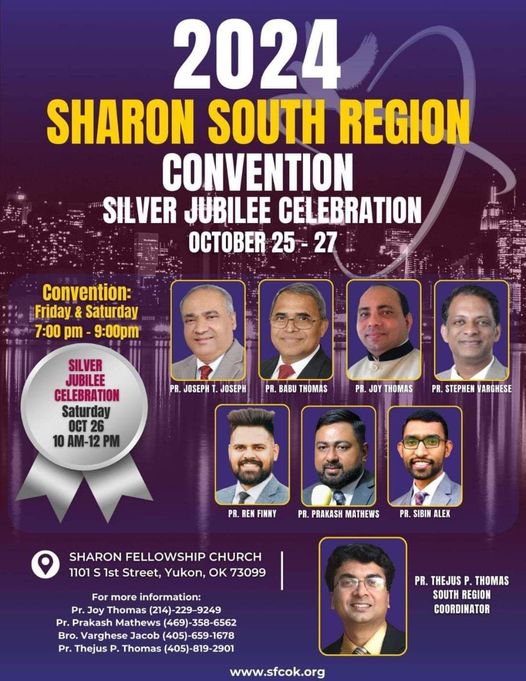
ഒക്കലഹോമ : ഒക്കലഹോമ ശാരോൻ ഫെല്ലോഷിപ്പ് ചർച്ച് സിൽവർ ജൂബിലി മീറ്റിംഗും ശാരോൻ നോർത്ത് അമേരിക്ക സൗത്ത് റീജിയൻ കൺവൻഷനും ഒക്ടോബർ 25 മുതൽ 27 വരെ ഒക്കലഹോമ ശാരോൻ സഭാഹാളിൽ നടക്കും.
പാസ്റ്റർമാരായ റ്റിങ്കു തോമസ് (പ്രസിഡന്റ്), ജോൺസൻ ഉമ്മൻ (സെക്രട്ടറി), ജോസഫ് റ്റി ജോസഫ്, ബാബു തോമസ്, ജോയ് തോമസ്, സ്റ്റീഫൻ വർഗീസ്, പ്രകാശ് മാത്യു, റെൻ റെന്നി, സിബിൻ അലക്സ്,എന്നിവർ മുഖ്യാതിഥികൾ ആയിരിക്കുമെന്ന് റീജിയൻ കോഓർഡിനേറ്റർ പാസ്റ്റർ തേജസ് പി തോമസ് അറിയിച്ചു.
സിൽവർ ജൂബിലി ആഘോഷം ഒക്ടോബർ 26 ശനിയാഴ്ച രാവിലെ 10 മുതൽ 12 വരെ നടക്കുമെന്ന് സഭ സെക്രട്ടറി വർഗീസ് ജേക്കബ് അറിയിച്ചു. റീജിയൻ കൺവെൻഷൻ വെള്ളി, ശനി ദിവസങ്ങളിൽ വൈകിട്ട് 7 മുതൽ 9 വരെ നടക്കും. ഞായറാഴ്ച നടക്കുന്ന റീജിയണിലെ സഭകളുടെ സംയുക്തസഭായോഗത്തോടെ സമ്മേളനം അവസാനിക്കും.
സമ്മേളനത്തിന് സൗത്ത് റീജിയൻ കമ്മിറ്റിയും, SFCNA കമ്മിറ്റിയും സഭ കമ്മിറ്റിയും നേതൃത്വം നൽകും. പാസ്റ്റർ സിബിൻ അലക്സ് റീജിയൻ റീജിയൻ ക്വയറിനു നേതൃത്വം നൽകും
Sources:Middleeast Christian Youth Ministries
us news
Pastor arrested for ‘illegal worship’ advocates for Evangelical churches forcibly closed in Algeria
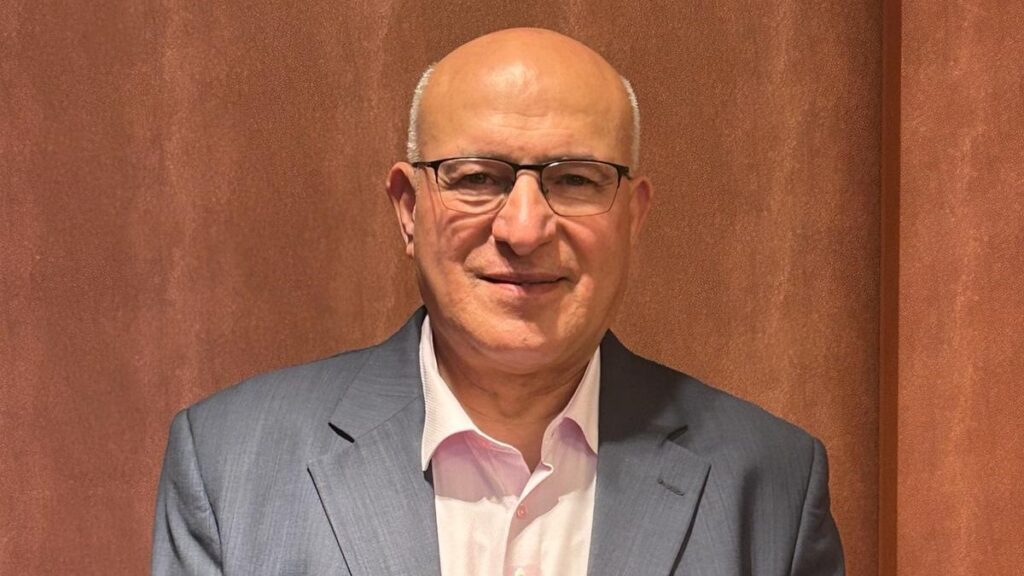
Algerian Pastor Youssef Ourahmane, arrested and sentenced for leading worship services in his home country, recently shared his experience, highlighting the ongoing repression of religious minorities in Algeria.
At an event hosted by the legal group ADF International, Youssef, a Christian convert and leader in the Protestant Church of Algeria, advocated for religious freedom and the reopening of Evangelical churches forcibly closed by Algerian authorities.
He recounted his arrest and conviction for the so-called crime of “illegal worship.”
“We have had a lot of opposition,” he told the audience. “By 2019, most of the Evangelical churches in our country had been shut down. When the churches were closed, a lot of the Christians felt that something was gone in their Christian faith because the building had been part of their identity.”
Born into a Muslim family, Youssef converted to Christianity as a student and has been leading congregations for over 30 years. Despite legal challenges and personal risk, he remains steadfast in his faith.
When asked why he is willing to face imprisonment, he responded, “God knows the number of my hairs on my head, and none fall without His will. We have to accept God’s will, and God’s sovereignty. I try my best, by His grace, to be a good testimony to others.”
On July 2, 2023, Pastor Youssef was sentenced to two years in prison and fined 100,000 Algerian dinars ($750) for leading the Emmanuel Church in Algeria. Although his prison sentence was reduced to one year in November 2023, the Court of Appeal in Tizi Ouzou upheld his conviction in May and added an additional six months of suspended prison time.
“Despite their small numbers, Algeria has systematically been working to prevent the Evangelical community from being able to simply worship together,” said Kelsey Zorzi, director of advocacy for global religious freedom for ADF International, during the event. “Pastor Youssef’s case is one of roughly 50 spurious cases against Christians in the past few years. His advocacy throughout the years on behalf of the entire Evangelical church in Algeria, even in the face of potential imprisonment, is an inspiration.”
ADF International says it’s collaborating with other non-governmental organizations to support Youssef, aiming to raise his case with government officials from over 40 countries. “The United States and the international community must take a strong stand against the unlawful church closures and unjustified arrests and imprisonments of pastors,” Zorzi said.
Algeria, a nation where 99% of the nearly 43 million population identify as Sunni Muslim, has seen increased restrictions on religious minorities. The government enforces laws that limit religious freedom and expression, including blasphemy and anti-proselytism statutes targeting Christians and other minorities, according to ADF International.
Since 2019, authorities have forcibly closed 43 churches affiliated with the Église Protestante d’Algérie (EPA), leaving only one open, according to ADF International. Security police, acting on orders from the Ministry of Interior, have cited alleged “health and safety” code violations to justify locking church doors and declaring worship inside illegal.
“In one case, they physically beat a pastor in front of his young child because he was peacefully protesting the closure of his church,” ADF International reported.
Youssef has also faced baseless criminal prosecutions since 2008 for his peaceful Christian activities. He is among 50 Christians convicted under vague offenses such as “shaking the faith” of Muslims, illegal worship or embezzling tithing donations.
“In the 1970s, the government gave out licenses to churches which were largely full of expats,” Youssef explained at the event. “Today, the government is concerned that our churches are almost entirely filled with large numbers of Algerian converts.”
The crackdown has also affected small house congregations.
According to 21 Wilberforce, “The government mandates they can only have 10 people per gathering, forcing many house churches to operate underground. Church leaders who continue to hold services in Algeria are threatened, and several have been arrested and prosecuted by the government.”
Open Doors International reported that only four out of 47 churches under the Evangelical Protestant Church of Algeria remained open at the end of 2023.
“Christianity’s long history in Algeria is threatened,” stated 21 Wilberforce. “As the government closes churches and slows down the registration process for religious groups, Algerian Christians are finding life increasingly difficult.”
The United States Commission on International Religious Freedom has recommended that Algeria be included on the U.S. Department of State’s “Special Watch List” for severe violations of religious freedom. In its 2024 Annual Report, USCIRF highlighted the escalating repression of religious minorities in Algeria.
Violations of the rights of religious minorities contravene both international and domestic law, according to ADF International.
Sources:Christian Post
-

 Travel5 months ago
Travel5 months agoയാക്കൂസ കരിഷ്മ:ഓല സ്കൂട്ടറിനേക്കാൾ വിലക്കുറവിൽ കുഞ്ഞൻ കാർ; സിറ്റി യാത്രകൾക്ക് ഇനി ഇവൻ മതിയാവും
-

 National8 months ago
National8 months agoനെയ്തേലിപ്പടി ക്രൂസേഡിന് അനുഗ്രഹീത സമാപ്തി
-

 Movie7 months ago
Movie7 months agoActor Ryan Phillippe ‘Craving’ Relationship With God After Movie About Christian Missionary
-
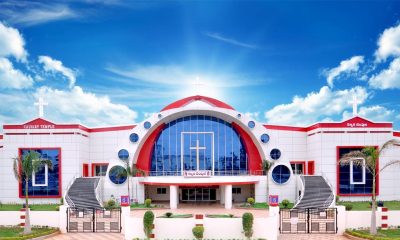
 National8 months ago
National8 months ago300,000-Member Indian Church to Plant 40 More Megachurches
-

 Movie10 months ago
Movie10 months agoBrazilian gospel singer Pedro Henrique dies of heart attack after collapsing on stage
-

 Tech3 months ago
Tech3 months agoചിത്രങ്ങൾ എഡിറ്റ് ചെയ്യാം; വാട്സ്ആപ്പിലെ ‘നീല വളയം’ സ്മാർട്ടാകുന്നു, കാര്യമായ മാറ്റങ്ങൾ
-
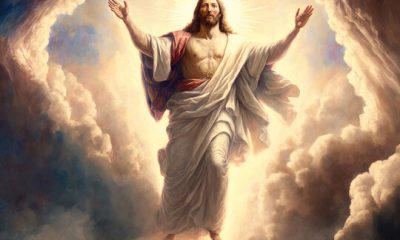
 Hot News7 months ago
Hot News7 months ago3 key evidences of Jesus’ return from the grave
-

 Articles4 months ago
Articles4 months ago8 ways the Kingdom connects us back to the Garden of Eden

